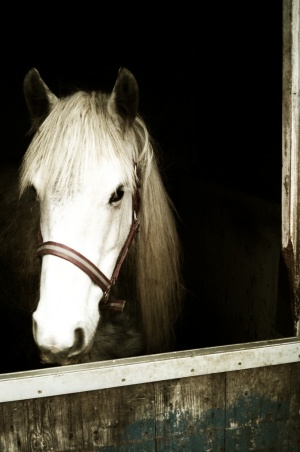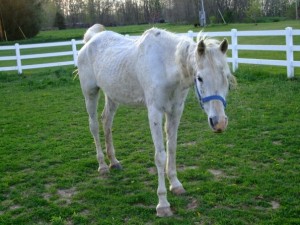
Wildfires, hurricanes, flooding, tornado threats, all are yearly disasters we face. Planning ahead to evacuate and save large animals such as horses is paramount in these situations. Decide on an evacuation plan that fits your circumstances.
If you own a horse trailer, train your horse to go in quickly on your command. Check the trailer regularly to make sure tires and all working parts are in good condition. Stock the trailer with blankets, halters, lead ropes, protective gear for the horses are ready. Keep at least 2 weeks worth of feed, hay and supplements in the trailer, discarding anything that spoils and replacing it. Have an emergency first aid kit ready, check dates on any medications and renew when necessary. Place duplicates of all important paperwork such as medical records, registration papers, records of immunization, etc. in a sealed plastic bag in the trailer. Keep the truck that will attach to the trailer in good working order. Check brakes, tires, lights, oil and gas at regular intervals.
If you don’t own your own trailer, find out what arrangements you can make with someone who does have one.
Secure tags on halters for each horse, include your name, cell phone number, a friend’s or relative’s cell phone number, your veterinarian’s number. Tattoo or microchip your horse(s) in case tags become lost.
Learn where animal evacuation centers that accept horses are. If you have a friend or relative who is not in the evacuation center, make arrangements to take your horses to them. Ask your veterinarian if he has safe facilities to keep horses through the disaster. Check with local equine associations to see what assistance and information they can offer. Have meetings with other horse owners to gather information and plan together for disasters.
If you must leave your horses in a flood or hurricane, it’s best to turn them out rather than leave them tied up in a barn. With today’s early warning systems, you can prepare beforehand for such an eventuality. You’ll need supplies to last about 2-3 weeks. Purchase large troughs that are heavy to avoid damage to them. A horse drinks about 30-40 liters of water daily, more in hot weather. Troughs hold about 565 liters. Your horse will need anywhere from 420-840 liters for 2-3 weeks. Don’t leave grain, choose forage. An 1,100 lb. horse consumes about 16.8 lbs. daily, but leave extra just in case. Remember to remove the baling twine from the hay so the horse doesn’t accidentally consume it while feeding. Provide salt and mineral blocks. Spread supplies to several locations you think will not become flooded.
Most importantly, have regular evacuation drills, especially if you live in areas where disastrous weather and fires occur frequently. Try to keep calm if the worst happens. With practice drills on a regular basis, your horses will accept the real thing as routine.
Related Articles


